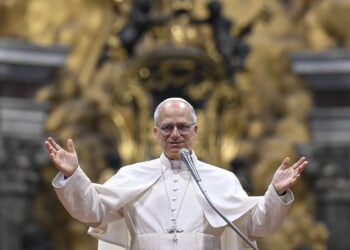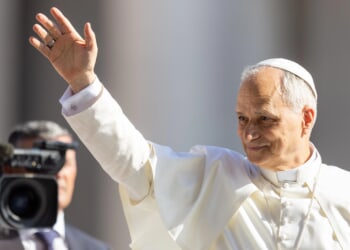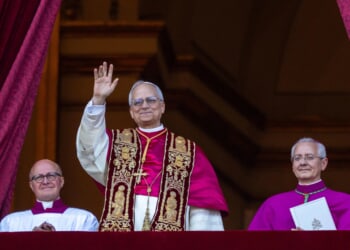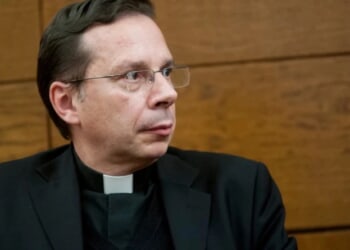CNA Staff, May 22, 2025 /
12:12 pm
The U.S. Supreme Court on Thursday declined to issue a ruling in a contentious case involving what was proposed to be the nation’s first religious charter school, leaving untouched a lower court ruling that forbids the Catholic institution from accessing state funds.
In its Thursday ruling, the high court said its judges had split evenly on whether or not to allow St. Isidore of Seville Catholic Virtual School to launch in the state of Oklahoma. The ruling leaves in place an Oklahoma Supreme Court order that said the school’s use of public money would violate state and federal law.
“The judgment is affirmed by an equally divided court,” the unsigned order said.
The per curiam decision noted that Justice Amy Coney Barrett “took no part in the consideration or decision” of the case. Barrett had recused herself from the case for unknown reasons, though it was likely due to her ties to the University of Notre Dame. The school’s religious liberty clinic helped the Catholic charter school in its bid before the Supreme Court.
Conservative-leaning justices at the high court had last month seemed sympathetic to the establishment of the school, while the court’s liberal justices were more skeptical of the proposal.
At issue was whether the Catholic charter school would violate laws regarding the separation of church and state and the establishment of state-supported religion. Charter schools are privately-run institutions that are funded by the government similar to public schools.
Oklahoma Attorney General Gentner Drummond had argued against the incorporation of the school, claiming it violated Oklahoma and federal laws. The prosecutor referred to the institution as a “state-established religious school” and described it as “repugnant to Oklahoma and federal law.” He alleged that Oklahoma might be forced to subsidize “radical Islamic” schools if it allowed the Catholic institution access to public money.
The school was backed by religious liberty advocates, meanwhile, as well as the Archdiocese of Oklahoma City and the Diocese of Tulsa, both of which were involved with the school’s creation.
Archbishop Paul Coakley and Bishop David Konderla last month said they “pray[ed] and hope[d] for a decision that stands with religious liberty and the rights of Oklahoma families to make their own decisions in selecting the best educational options for their children.”
Neither the diocese nor the archdiocese immediately responded to requests for comment on Thursday morning.
Meanwhile, Drummond’s office told CNA on Thursday said the ruling “represents a resounding victory for religious liberty and for the foundational principles that have guided our nation since its founding.”
“This ruling ensures that Oklahoma taxpayers will not be forced to fund radical Islamic schools while protecting the religious rights of families to choose any school they wish for their children,” he said.
The charter school had received the backing of the U.S. Conference of Catholic Bishops, which told the Supreme Court last month that charter schools “have long performed the function of educating students” in the United States and that St. Isidore’s participation in the state charter program would “not make it a state actor.”
Two dozen amicus briefs were filed at the Supreme Court in support of the Catholic charter school, including from the U.S. Solicitor General’s Office and the Union of Orthodox Jewish Congregations of America.
Also backing the school were a dozen states including Ohio, Texas, South Carolina, and Kansas, who argued in a brief that they had “a compelling interest in expanding educational opportunities for their citizens.”

















